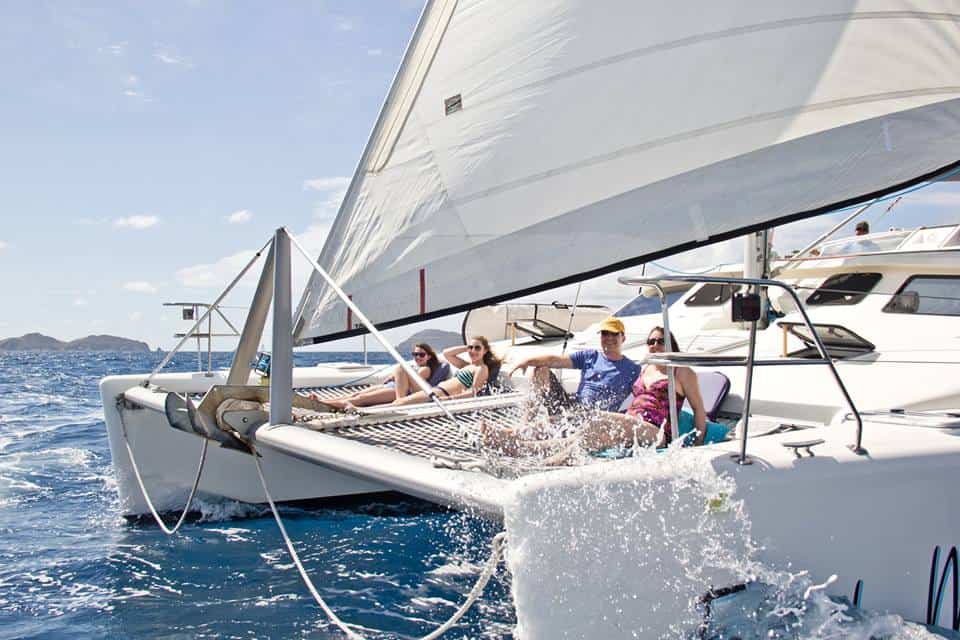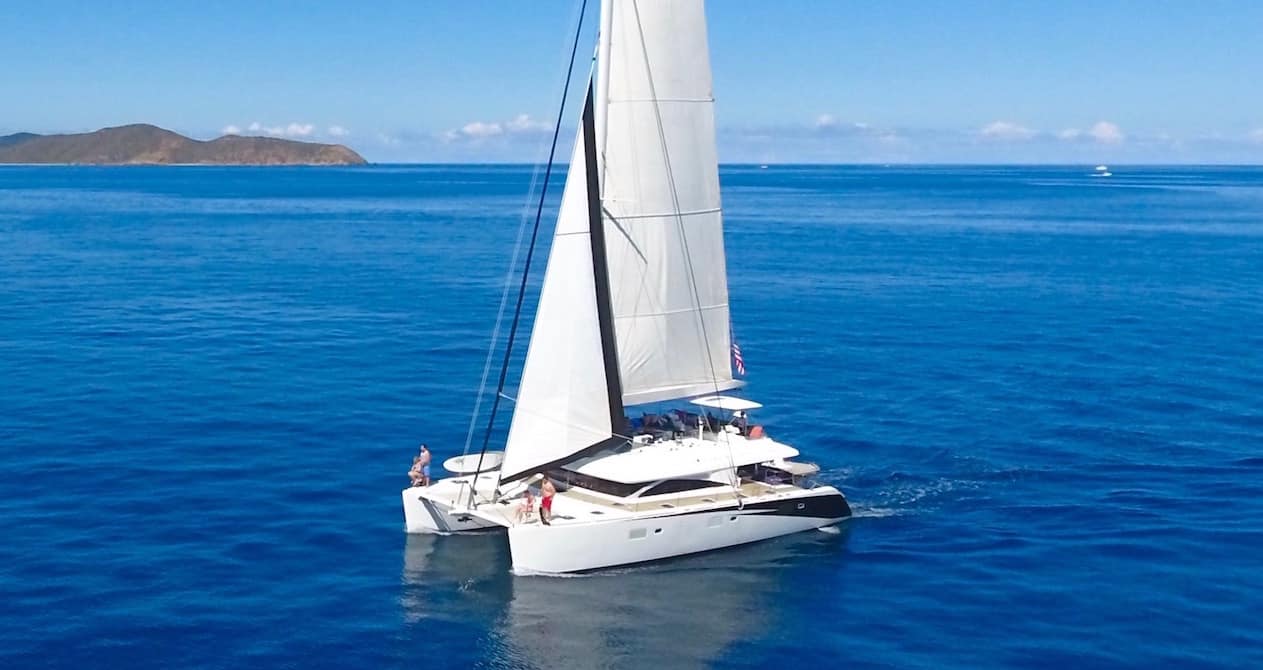 We have received so many questions about operating a yacht as a business in the last few months, so we’ve decided to present a FAQ section for YBO. Basically, if you are a US tax payer, enjoy sailing and want to own your own yacht at a substantially reduced cost, this program will work for you. Although the acquisition of a new yacht may be an effective business tool to take advantage of these tax rules, the tax benefits must be carefully planned, documented and implemented to make sure that it can withstand scrutiny.
We have received so many questions about operating a yacht as a business in the last few months, so we’ve decided to present a FAQ section for YBO. Basically, if you are a US tax payer, enjoy sailing and want to own your own yacht at a substantially reduced cost, this program will work for you. Although the acquisition of a new yacht may be an effective business tool to take advantage of these tax rules, the tax benefits must be carefully planned, documented and implemented to make sure that it can withstand scrutiny.
Many of your questions and doubts will be answered in this list but if not, please feel free to give us a call or email us. Also read the article explaining Yacht Business Ownership in more detail.
| Should I Own The Yacht Personally Or Through A Corporation?
It is better to own the yacht in a corporation because it reduces personal liability. It is a smart thing to do when running the yacht as a business where it will be for charter. If you place the vessel in an LLC the tax benefits flow through to you personally.
| Can I Legitimately Take The Tax Deductions?
If you are actively involved in the business and meet the IRS tests for active participation then it is a business and you can legitimately take the deductions and benefit from it. You need to show active participation as well as the ability and the intent to make a profit.
| What Type Of Active Participation Is Required?
The most common test is that the owner does a minimum of 100 hours and more than any other one person. If you do a website, attend trade shows, do familiarization trips and technical inspection of asset directly related to your business, you will log far more than 100 hours.
| How Do I Meet The Requirements?
In the course of running the business:
- Attend a trade show such as the Annapolis trade show where the yacht is promoted for charter, you would easily and legitimately log 50 to 75 hours.
- Apart from the chartering component of the business where the LLC (sub contractor) generates income through the charter company (general contractor) there are other income streams for the LLC such as charter sales where the LLC earns commission from charters sold on its own yacht, as well as other yachts in the fleet.
- To be effective and facilitate the sale of charters, the owner would need to do “familiarization” trips to have good knowledge of the product being sold which is the cruising ground (this is much like a travel agent who travels to destinations that they promote and sell packages into).
- One familiarization trip per year would log a minimum of 50 to 100 hours. It is also reasonable to have an annual inspection of the asset, which would require traveling to where it is located, again this would log 50 to 75 hours at the very minimum.
| Will Doing This Trigger An IRS Audit?
There is always the chance of an audit when a large deduction is generated, if proper records are kept and the owner does actively participate with the intent to make a profit then the standard is met and should satisfy scrutiny. Your CPA is the best person to answer this question because personal circumstances differ from person to person.
| What Amount Of Money Must I Put Down To Get Into The Program?
The deposit required by most lenders is 20 % so the cash out would be 20% of the full purchase price plus two months of mortgage payments in the Guaranteed program and two months of mortgage payments plus the insurance premium (1.5% of hull value) in the performance program.
| Is The Boat Insured During The Program And How Am I Protected?
The boat has comprehensive insurance in the name of the owner or the LLC from the time the keels touch the water. If there is a loan the lender is recorded as the first loss payee and DYC is noted on the policy for charter operations. The deductible is covered by an additional insurance policy that the charterer pays, so the owner has no exposure to a deductible unless they cause the damage themselves.
| What Tax Reporting Is Required?
Your CPA will be able to answer this but generally the LLC would generate a K1 which would be incorporated into the tax return
| Do The Tax Advantages Flow Through To Me Personally?
Yes they do.
| Is There Recapture On The Tax Advantages When I Sell The Boat?
Yes, there is if you sell the yacht outright at the end of the program and the rate is at ordinary income. If you keep the vessel for personal use after the program than this should not be an issue but check with your CPA for your personal situation. The third alternative is to trade the yacht is and do a “like kind” exchange in which case there is no recapture.

Common Misconceptions About Running a Boat as a Business
| Putting A Yacht Into Charter Is A Passive Activity Like Rental Property
Wrong, if you put the vessel into a Corporation and run it as a business and ensure you meet the relevant standards and tests then it is a small business and is taxed accordingly. Note, that if you go into a guaranteed income program where you sign a long term management agreement and receive a monthly guaranteed income, then this is passive activity and you will not be allowed to generate tax advantages save and except if you have passive losses that you can be offset against passive income.
| You Need 500 or 700 Hours Of Active Participation To Qualify
No, the test most commonly used is ” a minimum of 100 hours and more than any other one person”. You will find that the US staff and base staff, who all have different tasks, will never spend more time on your boat individually than you will in a given year. Remember that the trade shows, familiarization trip, asset inspection trip, marketing, contract negotiation (we renegotiate the contract each year) would result in close to two hundred hours of active participation not to mention that all costs are also deductible.
| You Will Automatically Trigger An Audit
Unlikely that an audit is automatic, this is not the experience we have over the last eight years. The issue is to meet the tests and standards and ensure that you are in compliance with the rules. This is not for everyone but if scrutinized and everything is in order then it is unlikely that it would proceed to an audit.
| You Have To Make A Profit Three Out Of Five Years To Avoid “Hobby Loss” Rules
The rules state that if you make a profit three out of five years then hobby loss cannot be applied. To be clear, you DO NOT HAVE to make a profit three out of five. Many CPAs make this statement, which is not entirely accurate as it is interpreted the wrong way. The actual rule is that you have to have “the Ability and the Intent” to make a profit which is clearly the case here.
| A Yacht Does Not Qualify For Tax Advantages
The yacht is equipment that is being purchased and placed into service in a small business that has the ability to make a profit if well run which is the intent. The same rules would apply to the owner of a dump truck who sub contracts to a general contractor, there is fundamentally no difference. The truck would qualify for section 179 and Bonus Depreciation if purchased new. The owner would be actively involved even if there is an employed driver because of contract negotiations, marketing admin etc. and the intent is also to make a profit.
| You Cannot Use The Yacht While It Is In The Program
You can use the yacht. It is generally agreed between most CPA’s who are familiar with the program that 10% of private use by the owner over and above the familiarization and asset inspection trips, is acceptable.
For More Information About Yacht Business Ownership And Tax Advantages, Contact Us





